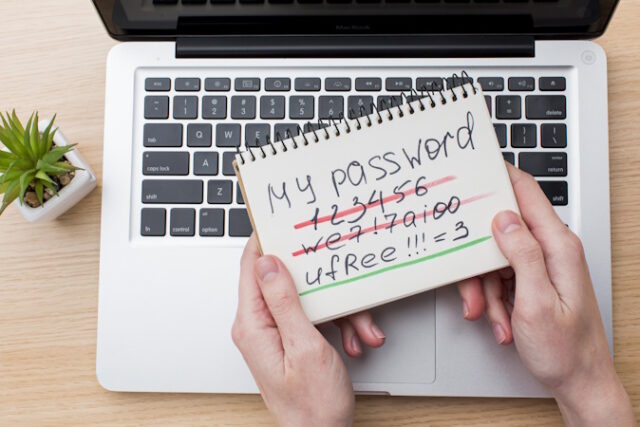
Passwords keep your online accounts protected from hackers … but not if they’re easy to guess. Cybercriminals know what’s overused and will use that against you.
Curious as to how your passwords measure up? Read on to see if yours made the naughty list and get my smart tips to protect yourself from hackers.
Spill the tea
A recent study examined over 6 million breached passwords to find the worst offenders. No, it’s not just things like “password” and “123456” — but those are bad, and if you use ’em, change ’em.
Over 1.5 million of those crappy passwords were eight characters or less. Almost 30% used fewer than 12 characters. The most popular hacked passwords used all-lowercase letters.
Take a look at the top 10 most-hacked password categories:
- Nicknames/terms of endearment
- TV show characters
- TV show names
- Colors
- Fashion brands
- Cities
- Countries
- Movie titles
- Body parts
- Car brands
Don’t call me ‘sweetie’
If your online banking password shares your spouse’s nickname, it’s not strong enough (unless you call them something really weird). Terms of endearment like “king,” “rose,” “boo” and “love” were high on the easily breached list.
Pets’ names, swear words and video game characters (Joel, Mario and Link) weren’t far behind. Sports, football teams and superheroes were in the top 20, too.
Keep it locked down
Passwords are a royal pain in the rear, but you need to take them seriously. Here are some tips:
- Create a password with 12 to 16 characters. The longer, the better! An 8-character password can be cracked in less than an hour.
- Use a mix of letters, numbers and special characters or symbols. Don’t just add a “1” or an exclamation point at the end.
- Use a password manager to keep track of all those complex logins for you.
- If you think your password has been compromised, change it ASAP. This is especially true if you keep getting texts or emails that someone requested a change and it wasn’t you. Lock it down.
See the full list of bad passwords on my site. Spot one you recognize? Oops, time to change it.
Disclaimer
The information contained in South Florida Reporter is for general information purposes only.
The South Florida Reporter assumes no responsibility for errors or omissions in the contents of the Service.
In no event shall the South Florida Reporter be liable for any special, direct, indirect, consequential, or incidental damages or any damages whatsoever, whether in an action of contract, negligence or other tort, arising out of or in connection with the use of the Service or the contents of the Service. The Company reserves the right to make additions, deletions, or modifications to the contents of the Service at any time without prior notice.
The Company does not warrant that the Service is free of viruses or other harmful components












